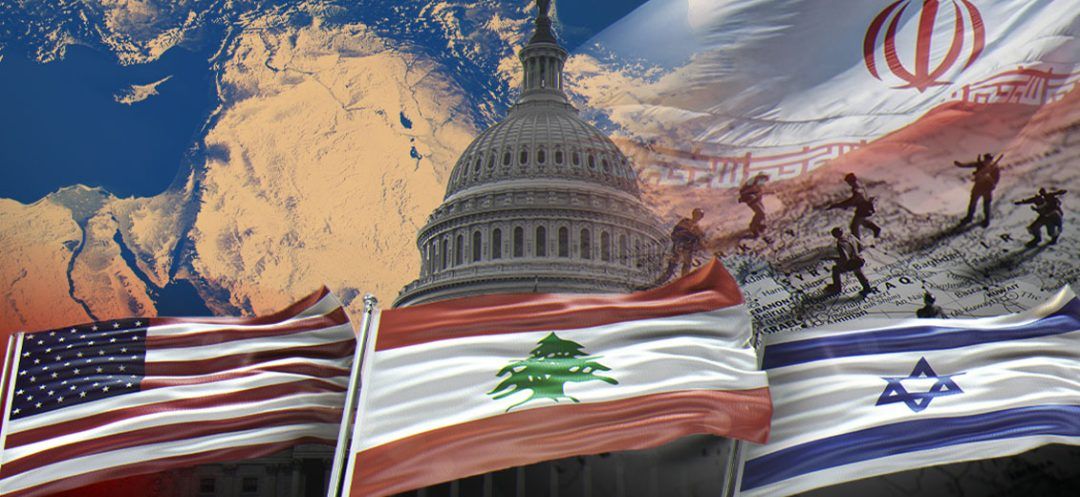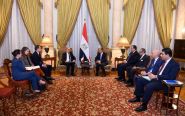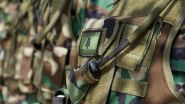
The people of the Middle East, particularly Lebanese, Israelis, Palestinians, and their near neighbors are understandably living on a knife's edge of uncertainty about what's next ever since the killing of Ismael Haniyeh in Tehran on July 31, 2024. It was a humiliation for the Iranians to have an honored terrorist guest assassinated in a high-security guest house amidst the celebratory inauguration of their new president, whose predecessor had been humiliatingly killed in the crash of a state-owned and controlled helicopter. Iranian leaders could hardly fume and bluster about their intended retaliation without suffering further loss of face.
Those of us without access to intelligence can only speculate, but what exactly is it that people think the Iranians are going to do? After their last big humiliation, the assassination of a senior IRGC commander and his immediate staff in Damascus in April, the Iranians launched a salvo of drones and missiles that Israel and neighboring states successfully parried. At the state-to-state level, Iran cannot sustain a fight with Israel. It is likely instead to pursue this phase of its campaign against Israel, which started on October 7, back again at the level of asymmetrical proxy war. That way, Iranian leaders have more advantages and fewer risks. Nonetheless, Hezbollah seems loath to escalate too aggressively; a full-blown war with Israel is hardly in the interest of its Iranian master. After all, Hezbollah's arsenal was not built to defend Lebanon, but to deter Israel from attacking Iran.
There have been broad hints that Iran and its allies have options for terrorist attacks against soft Israeli or Jewish targets around the world. That is certainly a tried-and-true playbook for them, deniable and hard to prevent. Horrible, but unlikely to change the balance of power in the Middle East. Just think back to one example, Hezbollah's 1992 and 1994 bombings of the Israeli embassy and a Jewish community center in Buenos Aires. They were retaliation for Israel's strike in 1992 on Hezbollah's leader, Abbas al-Musawi.
But none of the current American proposals to reduce or stop the fighting is likely to change the basic, decades-old pattern of conflict. Conventional thinking in Washington builds from an assumption that a Gaza ceasefire is the key to bringing calm to the Israeli-Lebanese border, perhaps alongside a few tweaks to UN Security Council Resolution 1701. These consist of mini-moves like relocating some Hezbollah fighters to the north and some Lebanese Army soldiers to the south while deploying more UN "peacekeepers" with neither a peace to keep nor a mandate to impose one. And the idea of trying to resolve the border anomalies that are a legacy of French colonialists surfaces from time to time -- anomalies Hezbollah is loath to lose as pretexts for "resistance".
Those are all potentially useful ingredients for a larger formula that could build more durable security for Israelis and Lebanese alike in the right context, except they don't address the core problem. Iran has its hand on the spigot of violence in south Lebanon and northern Israel and continues to fund, train, and arm Hezbollah. So long as Iran is unmotivated to alter its belligerent approach to Israel, mini-moves in Lebanon will change nothing there. Unless Israeli leaders and their public see an American initiative that compels a change in Iran's calculus, they are unlikely to take Washington's word that all's clear on their northern front. So, instead of the end of the conflict in Gaza bringing stability to the Israeli-Lebanese front, it will actually be the moment of greatest uncertainty as Israelis weigh the pros and cons of trying to end the situation it faces in the north. Outsiders have not sufficiently internalized the extent to which the trauma of October 7 has produced among Israelis a profound distrust of past national security strategies. Israelis have not formulated a replacement strategy, but they are not going to return passively to the pre-October status quo -- in either Gaza or along their northern border -- just because the Americans, Europeans, Arabs, and others would find that more convenient than the alternatives.
Of course, the predicament for Israel is that the lessons of 2006 are so obvious. The Israelis can't destroy Hezbollah. Targeting Lebanese civilians and infrastructure is not only cruel but ineffective since it will not change the behavior of Iran or Hezbollah. And the accumulation of ever-more sophisticated weaponry on both sides will make another war so costly that any rational leader should pause. What is essential is that America offers an alternative and compelling path to get out of this never-ending pattern of conflict. That means developing a strategy that changes the calculations of Iranian leaders. That is hard and elusive in the best of times. An American election year and the incumbency of a lame-duck president are not conducive to innovative foreign policies that require tolerating some risk as well as gaining support from both of our major political parties. So, the danger of a war is very real -- but not today. The moment of truth will be if and when the campaign in Gaza reaches an end state. American strategists should focus on changing Iranian behavior beforehand if they want to shape Israeli decision-making regarding the next phase.
Read more




Comments